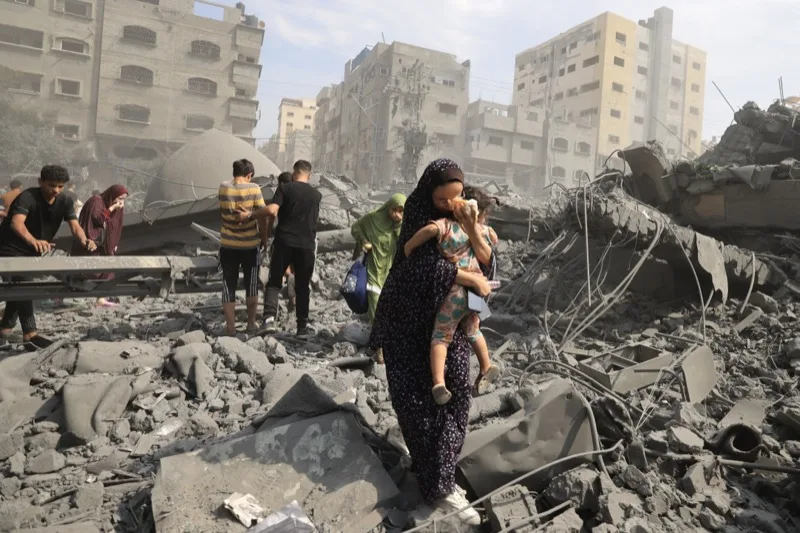
This weekend marked a bleak milestone as the crisis in Gaza passed its 100th day.
The level of death and destruction wrought in the territory over the last 14 weeks is unprecedented, with more than 24,000 people killed and 60,000 injured. Gaza’s 2.3million people are facing a humanitarian catastrophe, with the entire population now facing crisis levels of hunger and the threat of famine increasing by the day.
Women and children have been affected the most: they make up an estimated 70% of the total death toll, with more than three women killed every hour and one child killed every 10 minutes.
Thousands of children have been made orphans over the past 100 days, with Euro-Med Human Rights Monitor estimating that up to 25,000 children had lost one or both of their parents.
Children are suffering catastrophic injuries: more than 10 children have lost one or both their legs every day on average since October 7, with many having to undergo amputation without anaesthetic, according to Save the Children.
With more than 85% of the population forced to flee their homes, people are living in incredibly crowded, unsanitary and inhumane conditions. People’s basic human needs increasingly cannot be met – nine out of ten people are eating less than one meal a day and struggling to find drinkable water, according to the World Food Programme. Using the bathroom involves queuing for hours, medicine is scarce or unavailable, and staying dry and warm is impossible as hundreds of thousands of people sleep in flimsy tents or out in the open without adequate warm clothing or protection from the rain.
Basma* and her family were displaced from their home in Jabalia, northern Gaza, and are currently staying in a tent in Khan Younis. Basma lost her husband and is now caring for their six children alone. She said: “My orphaned children and I were displaced from the north to the south. And I saw many scenes of horror and fear.
“I now live in a tent where life is almost non-existent. [There is] no electricity, no water, no food, none of the necessities of a decent life. My orphaned children sleep to the sound of tanks, bullets, airstrikes, and the sound of missiles. There are no covers, no mattresses, no bathrooms, no hygiene. And medicine is almost non-existent. [There is] nothing of a decent life at all.’
“‘The aid that we receive is not enough for anything. I have six children, so it is not enough for one of them. I hope to make my children happy and buy them anything to satisfy their hunger. My smaller son [is] asking me for biscuits but the prices are very high. If my children survive the continuous bombing, terror and fear, they will die of hunger. Where is the world?”
After 100 days of being deprived their basic human rights and living in a constant state of terror, people in Gaza have shared their desperate calls for an immediate and permanent ceasefire.
Iman, a youth volunteer for a women’s organisation that partners with ActionAid in Gaza, said: “To all the free people of the world, to those who have an ounce of humanity within them, silence the guns and silence the cannons and stop the raids.100 days of war on Gaza… against women, children and the elderly. We are in Gaza. We ask the world to stand by us. To bring a ray of hope to these innocent people. Stop the war.”
Zara*, a young child who has been displaced to Rafah, told us in a voicenote message: “I wish for this war to end. I love Palestine, my country. I love Gaza. There is bombing all around us as we speak right now. I see the children of the world living freely and happily. I want that, too. I want to live freely, just like them.”
Riham Jafari, Advocacy and Communications Coordinator at ActionAid Palestine said: “It is extremely painful to watch this crisis pass its 100th day without any let up to the bombing and destruction. The picture in Gaza at day 100 of this crisis is horrifically bleak. Hundreds of thousands of people are on the brink of starvation, living in inhumane conditions and facing the constant threat of death by bombing, hunger or disease.
“The urgency of the situation cannot be overstated. Every single day that passes without a ceasefire sees dozens, if not hundreds, more Palestinians needlessly and tragically killed. The world cannot afford to waste another moment. Only a permanent and immediate ceasefire will stop further lives being lost, and allow enough desperately-needed supplies of food, water, medicine and other aid to reach those struggling to survive.”














